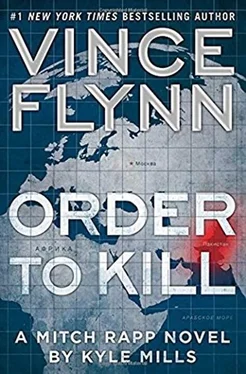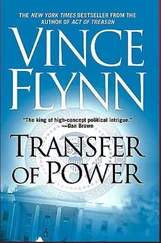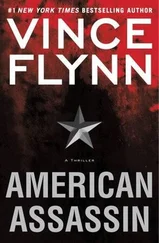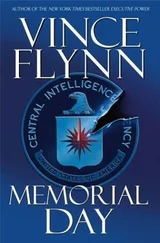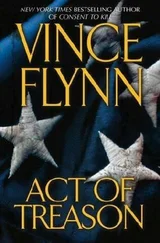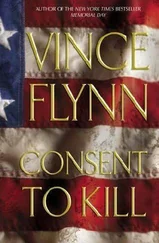“If we get involved, are we going to run headlong into an ISI operation?” Rapp asked, referring to Inter-Services Intelligence-Pakistan’s version of the CIA.
“I don’t think so,” Coleman responded. “According to Redstone, you killing the ISI’s director has completely paralyzed them. Everybody’s jockeying for position and playing both sides of the power struggle going on between General Shirani and the president. The fact that someone could wander off with one of their nukes is so low priority to them it barely makes their radar.”
“How many are we tracking now?”
“Thirteen warheads that we know of are currently on the move. We located another two stationary ones while you were gone, putting the total we have a handle on at fifty-three. The analysts are guessing that another twenty-five are attached to missile systems that would make them impractical to move.”
Rapp did some quick math in his head. “So that leaves somewhere in the ballpark of thirty unaccounted for.”
Coleman nodded. “Including the one we’re talking about now. We weren’t aware of it until Redstone tipped us off.”
It was a problem that had existed for years. The Pakistani army was paranoid about the Americans or Indians getting a bead on their nuclear arsenal, so they moved it around-on trucks, in train cars, in the trunks of private automobiles. Hell, there was credible intel that a tactical warhead had once been hauled three hundred miles on the back of a motorcycle.
It had always been an incredibly dangerous situation, but one that the Pakistani army kept more or less under control. The transfers were carefully coordinated and, even more important, the weapons were always partially disassembled and transported as individual parts that couldn’t be used to create a nuclear explosion.
So, on any given day, you could count on the fact that one or two nukes were making their way around the country monitored by an army division set up for just that purpose. Now that stupid-but reasonably well run-program was in chaos. Fully functional weapons were being haphazardly passed around by low-level officers and, in two confirmed cases, civilians. One warhead they were watching was currently parked in a retired captain’s storage unit. A recon team had managed to get a fiber optic camera through the ventilation grate and the Agency was now in possession of an honest-to-God picture of a hot nuke sitting next to a set of golf clubs. At this point, the chances of the situation spiraling out of control was almost a hundred percent.
“This is us,” Coleman said, cutting into an alley. He dialed a code into his phone and a rusted cargo door slid open in front of them. There were three motocross bikes in the bay and Rapp stepped out of the vehicle as they nosed up to them. The door began to close again and a moment later they were standing in the gloom provided by a single bulb hanging from the ceiling.
“The roads are a little narrower than Islamabad’s and the traffic’s about the same as Lahore. So, not knowing how fast we’re going to have to move or exactly where this is going to go down, I figured bikes would be our best bet.”
Joe Maslick, one of Coleman’s top men, leaned his considerable bulk through a door to Rapp’s right. His hand came off the weapon beneath his sweat-soaked shirt when he confirmed their identities.
“What’s the situation?” Rapp said, following the man into the next room.
The building looked like it had at one time housed some kind of convenience store, and it was still lined with empty shelves and counters. The large front windows had been blacked out, with the only illumination coming from places where the paint had gotten scraped off.
“We’ve got cameras on buildings at all the major entrances to town. Our manpower is limited but we have people physically covering some of the others. Keep in mind that most aren’t fighters. We scraped them up from wherever we could.”
“Choppers?”
“One on standby.”
“Anything new from Redstone?” Coleman asked.
“Yeah. He says we’re looking for a produce truck.”
“Do we have a description?” Rapp said.
“Better. We’ve got a plate number. I’ve texted it to all our people.”
“Any intel on where al Badr is going to make its move?”
“No. But we have a few educated guesses.” He motioned Rapp over to a large satellite photo spread out on the floor. The light was just good enough to make out detail.
“The fact that it’s a truck helps us. A lot of the streets are too narrow for it to fit through, so we can rule them out.” He used a car antenna he’d found on the floor as a pointer. “We’ve got guys on roofs here, here, and here. Obviously, they’re spread out but because the buildings are packed in so tight, they’re actually pretty mobile. The concentric circles around their positions represent one minute of travel time each.”
“What about Pakistani soldiers?” Rapp said.
“Police and military are stationed on most of the larger plazas and major intersections,” Coleman responded. “All this political turmoil is causing a fair amount of civil unrest. The presence isn’t heavy, though. Just a show of force to keep people in line.”
“Do they know we’re here?”
“The army and the cops? No, and that’s the way we want it in this town. Both the general in charge and the chief of police are playing for their own accounts. We considered paying them off, but neither is reliable or competent enough to bother with. They’re just covering their asses and waiting to see whether the army or the government comes out of this on top.”
“So we can’t count on them to help us?”
“Definitely not. More likely they’re going to get in our way.”
A walkie-talkie lying on the floor suddenly crackled to life. “Spotter eight to base. Come in, base.”
Maslick snatched it up and pointed to the number 8 scrawled on the map in red. “This is base. What have you got?”
“I have eyes on the target. Heading northeast on Okara near where it changes names. Traffic is heavy. I think I can keep up on foot.”
Maslick glanced at Rapp, who gave a short nod. “Do it. And let us know if he turns off that road.”
Coleman was already going for the bikes, dragging a box of a gear out from behind them. Rapp followed while Maslick notified their chopper pilot that he needed to be warming up his bird.
The flak jackets were a nonstarter, as were the leather pants and jackets. It was just too hot and there was a good chance this could devolve into a running fight. Rapp slipped a tan-colored climbing harness over his khaki cargo pants and untucked his shirt to obscure it. A shoulder holster would be too visible so he ended up going with the setup he jogged with at home-a compact Glock 30 in a fanny pack.
Coleman was going with a larger weapon in a CamelBak and was forced to wear a full helmet to cover his blond hair and fair skin. Rapp had been threatening for years to pay one of Coleman’s contracts with a tanning bed and a shipping crate full of hair dye, but the former SEAL refused to take the hint.
“Comm check,” Rapp said, putting on a throat mike and inserting the earpiece.
“I’ve got you,” Coleman responded through the radio built into his helmet.
“Five by five,” Maslick said a moment later.
“I’m going to try to get behind them. Scott, you come down on them from the north.”
“Roger that. I’ll see you in a few minutes.”
Rapp threw a leg over the closest bike and kicked it to life. The door began to open and when it got about four feet off the ground, he ducked and twisted the throttle, shooting out into the alley.
“THE American scout has seen the truck and is following on foot.”
Читать дальше
